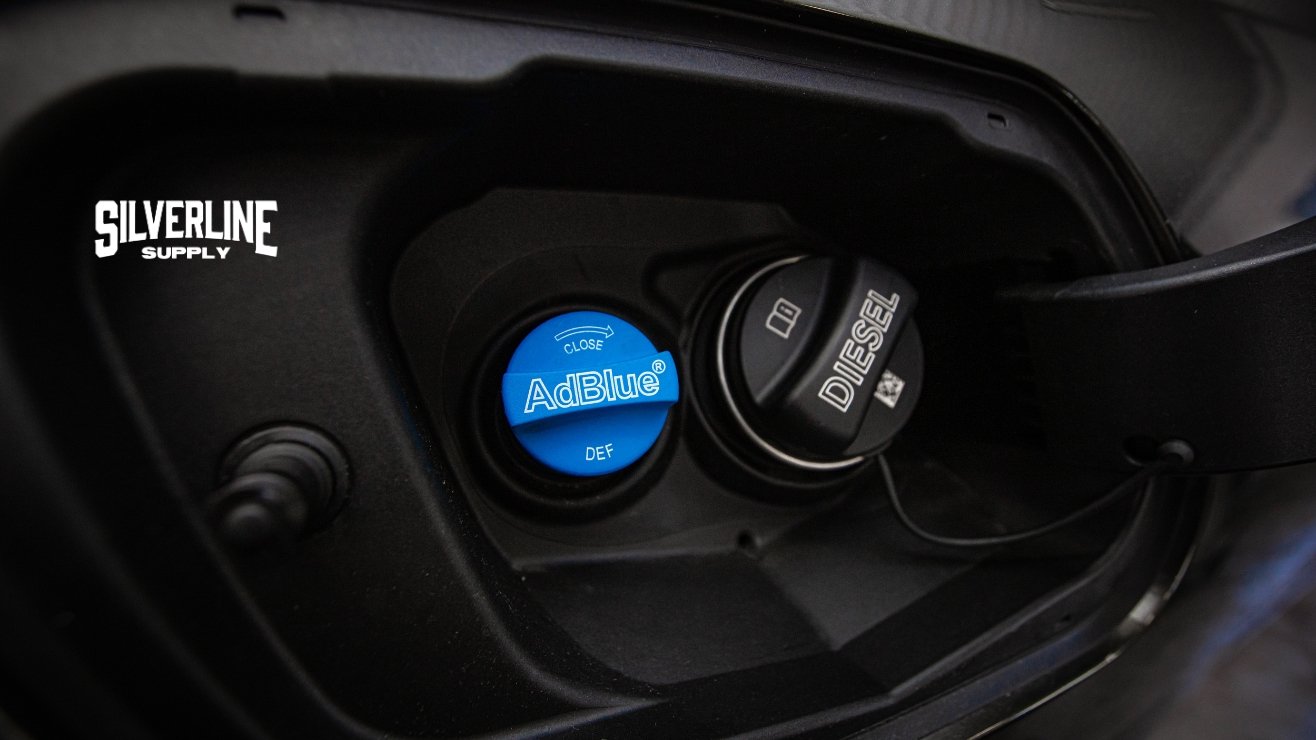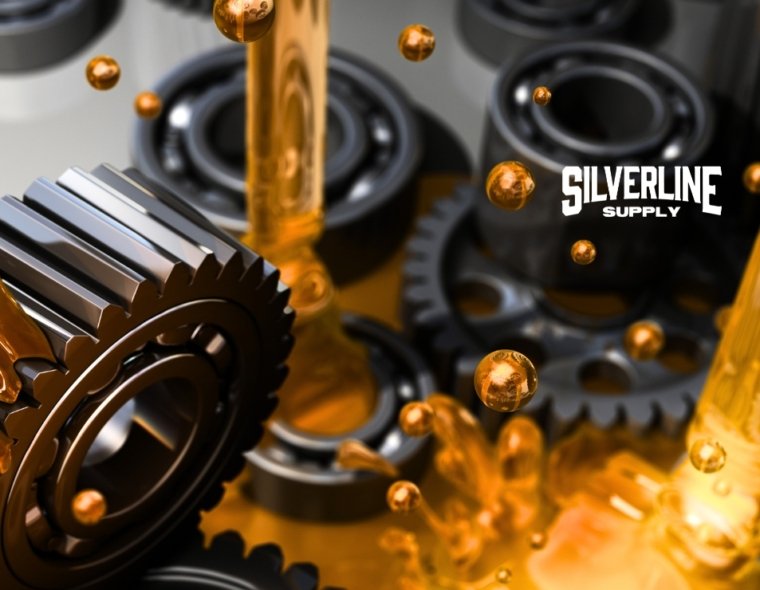In the dynamic landscape of construction and heavy machinery, diesel exhaust fluid (DEF) rapidly emerged as a critical component for modern equipment. As industries strive to reduce their environmental impact, DEF plays a pivotal role in minimizing harmful emissions produced by diesel engines. This essential fluid not only helps companies comply with increasingly stringent environmental regulations but also enhances the efficiency and performance of their machinery.
As the push for cleaner operations intensifies, it has become essential for professionals across the construction sector to understand what diesel exhaust fluid is, its benefits, and how to utilize it effectively on job sites. In this comprehensive article, we will delve into the composition of DEF, its primary functions, and the best practices for storage and handling. Additionally, we will provide insights on how to efficiently integrate DEF into your equipment management routines, ensuring optimal performance and compliance. Whether you’re a site manager, operator, or maintenance professional, understanding DEF is vital for maintaining a sustainable and productive work environment.
What is Diesel Exhaust Fluid?
Diesel exhaust fluid (DEF) is a vital non-toxic solution designed specifically for vehicles equipped with Selective Catalytic Reduction (SCR) systems, a technology aimed at reducing harmful emissions. Composed of a carefully formulated mixture of purified water and urea, DEF typically features a ratio of 67.5% water to 32.5% urea. This precise composition allows DEF to effectively facilitate the conversion of nitrogen oxides (NOx) in diesel engine exhaust into harmless nitrogen and water vapor.
The fluid is colorless and has a pH level comparable to that of baking soda, making it stable and straightforward to handle for operators. However, it is crucial to emphasize that DEF is not a fuel; instead, it serves as a necessary additive in the exhaust system. By injecting diesel exhaust fluid (DEF) into the exhaust stream, it plays a crucial role in enabling diesel engines to comply with stringent environmental regulations while promoting cleaner, more efficient operation. This process not only reduces harmful emissions but also supports sustainable practices within the industry, ultimately contributing to a healthier environment. Understanding the nature and function of DEF is fundamental for any operator looking to optimize the performance and sustainability of their diesel-powered machinery.
What is DEF Made Of?
To fully appreciate the composition and functionality of DEF, it is crucial to recognize that urea serves as its primary active ingredient. Urea is a nitrogen-rich compound synthesized from ammonia and carbon dioxide, widely known for its use in fertilizers due to its effectiveness in promoting plant growth. In the context of DEF, this compound plays a pivotal role in the reduction of harmful emissions produced by diesel engines.
When DEF (Diesel Exhaust Fluid) is injected into the exhaust stream of a diesel engine, it initiates a chemical reaction with nitrogen oxides (NOx)—the primary pollutants produced during diesel combustion. This reaction transforms NOx into harmless nitrogen gas and water vapor, effectively neutralizing harmful emissions before they enter the atmosphere. This process is not merely beneficial but essential for complying with the stringent emissions control standards set forth by regulatory bodies. By utilizing DEF, operators contribute to a significant reduction in the environmental impact of diesel engines, promoting cleaner air and a healthier ecosystem for all. Understanding the chemistry behind DEF highlights its importance in advancing sustainable practices within the transportation and construction industries.
Diesel Exhaust Fluid’s Purpose
Diesel exhaust fluid (DEF) primary function is to support the Selective Catalytic Reduction (SCR) process, a vital technology aimed at diminishing the environmental impact of diesel engines. DEF (Diesel Exhaust Fluid) is injected into the exhaust stream after the gases exit the engine, serving a vital function in reducing harmful pollutants. It specifically targets nitrogen oxides (NOx), which are byproducts of diesel combustion, significantly lowering their concentration and helping to minimize environmental impact.
By converting these toxic emissions into harmless nitrogen gas and water vapor, DEF not only contributes to cleaner air quality but also ensures that equipment operators adhere to stringent environmental regulations. This compliance is increasingly important as regulatory bodies implement more rigorous standards to combat air pollution and promote sustainability in various industries.
Furthermore, the effective use of DEF enables smoother operations on job sites. By mitigating emissions, operators can avoid potential fines and penalties associated with non-compliance, thereby enhancing overall productivity and operational efficiency. Ultimately, incorporating DEF into diesel engine operations goes beyond mere regulatory compliance; it signifies a commitment to environmentally responsible practices that benefit both the industry and the communities it serves. Understanding the significance of DEF in the SCR process underscores its essential role in fostering sustainable practices across various sectors, including construction, transportation, and agriculture.
The Role of DEF in SCR Systems
In Selective Catalytic Reduction (SCR) systems, diesel exhaust fluid (DEF) is injected into the exhaust stream at a precisely controlled rate. This injection occurs after the combustion of diesel fuel, enabling the efficient conversion of nitrogen oxides (NOx) into harmless nitrogen gas and water vapor. The SCR system is equipped with sensors that continuously monitor the concentration of NOx in the exhaust gases, allowing it to dynamically adjust the DEF injection based on real-time conditions. This optimization is crucial for enhancing engine performance while minimizing harmful emissions.
By accurately calibrating the amount of DEF injected, the SCR system ensures that the chemical reaction occurs under optimal conditions, maximizing the effectiveness of the DEF while conserving fluid usage. This not only leads to improved engine efficiency but also helps in maintaining compliance with stringent environmental regulations.
Understanding the interaction between DEF and your equipment is essential for operators and maintenance personnel alike. Proper management of DEF ensures that your machines operate efficiently, reducing downtime and avoiding costly penalties for non-compliance. Moreover, a thorough comprehension of how SCR systems work allows for better maintenance practices and proactive troubleshooting, ultimately leading to a more sustainable operation. As industries continue to prioritize environmental responsibility, grasping the intricacies of DEF and SCR technology will be increasingly vital for ensuring that your machinery meets both performance and regulatory standards.
Best Practices for Using Diesel Exhaust Fluid
As the diesel exhaust fluid (DEF)’s importance continues to rise, following best practices can help you maximize its benefits and ensure your equipment operates smoothly. Here are some key guidelines to consider when using DEF:
Proper Storage of DEF
Storing diesel exhaust fluid correctly is essential for maintaining its integrity. The ideal storage temperature for DEF is between 32°F and 86°F. Exposure to temperatures below 32°F can cause the fluid to freeze, while prolonged exposure to direct sunlight can degrade its quality. DEF has an average shelf life of about three years, so it’s crucial to monitor its expiration date.
Because DEF is alkaline, it can cause oxidation in certain materials. To avoid any adverse reactions, DEF should be stored in plastic or stainless steel containers. Avoid storing DEF in metal containers that are not specifically designed for it, as this can compromise the fluid’s quality.
Filling Your DEF Tank
Most modern diesel equipment comes equipped with dedicated DEF tanks. These tanks are designed with an opening that only accepts DEF fill nozzles, preventing any accidental contamination with diesel fuel. It’s important to ensure that the fill nozzle you use is specifically designed for DEF, as a standard diesel fuel nozzle will not fit.
DEF tanks typically hold between 15 and 50 gallons, depending on the size and horsepower of your equipment. Keeping a sufficient supply of DEF on hand is essential, as equipment will cease to operate once the DEF tank runs dry.
Monitoring DEF Levels
To help you optimize your diesel exhaust fluid use, most newer equipment models come equipped with DEF gauges. These gauges not only display the fluid level in the tank but also issue alerts when the level drops low, ensuring you can manage your DEF supply effectively and avoid operational interruptions.When the DEF level falls below 10% capacity, operators will receive alerts to refill the tank. If the DEF tank drops below 5%, the engine power will be reduced, although enough power will remain to move the equipment a short distance to add more fluid.
As a general rule, you should plan to refill the DEF tank approximately once for every three to four times you refuel with diesel. This frequency may vary based on your operating conditions and usage patterns.
Conclusion
Understanding diesel exhaust fluid (DEF) is crucial for anyone involved in the operation and maintenance of diesel-powered equipment. As emissions regulations become more stringent, the role of DEF in facilitating cleaner operations will only grow in importance. By familiarizing yourself with what DEF is, what it is made of, and best practices for its use, you can ensure that your equipment runs efficiently while contributing to a cleaner environment.
At Silverline Supply, we recognize the significance of using diesel exhaust fluid properly in your operations. Whether you’re in construction, landscaping, or any industry relying on heavy machinery, we are here to support your equipment rental needs. Our team is ready to assist you with any questions regarding diesel exhaust fluid or other equipment-related inquiries.
For further information about diesel exhaust fluid and how it can benefit your operations, feel free to reach out to us at Silverline Supply. We are committed to helping you navigate the complexities of equipment rental and maintenance, ensuring you have the resources needed for success on your job site. Together, let’s work towards a cleaner, more efficient future in heavy machinery operations


